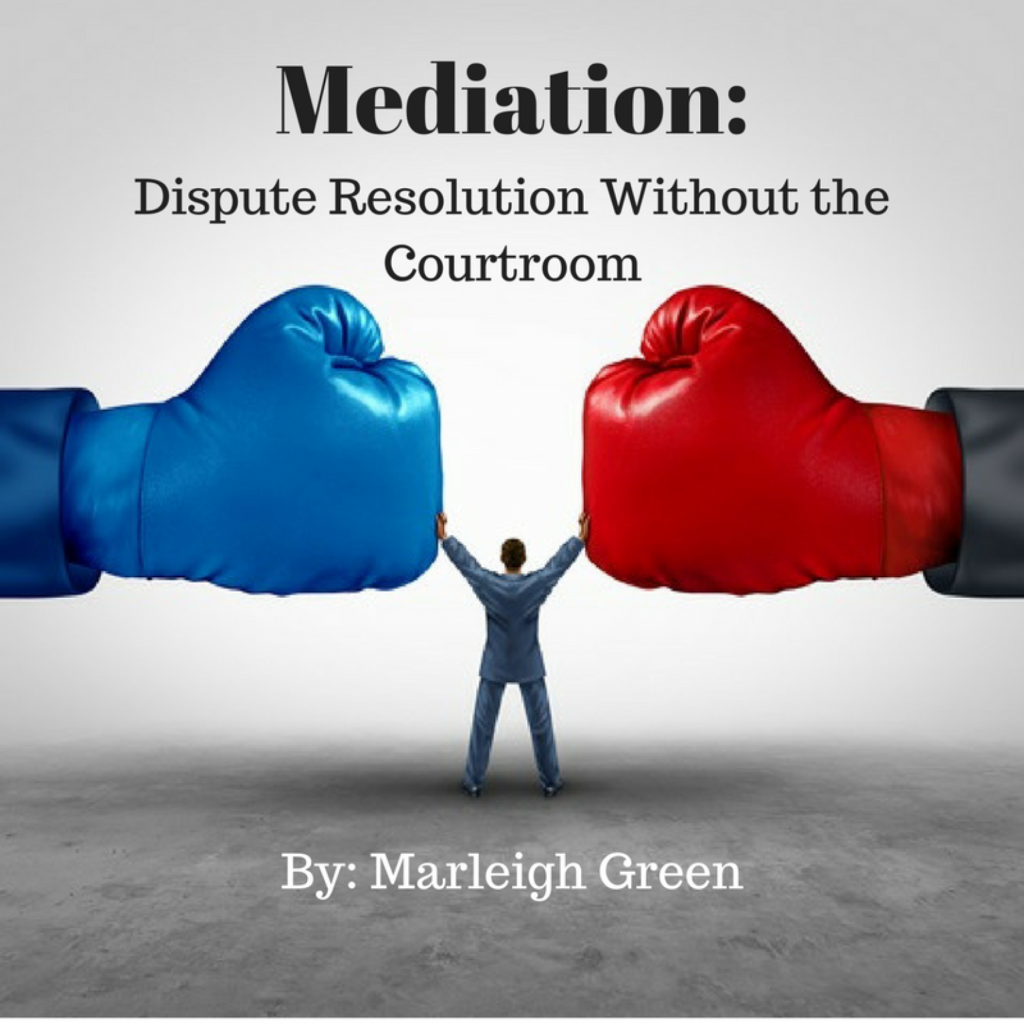If you have a lawsuit pending, and sometimes even if you don’t, you may be asked if you want to mediate your case. Mediation is a process where you, your lawyer, and the other side in your case agree to have a third-party neutral listen to your facts and legal arguments, and that third party neutral helps the parties reach a resolution. In Missouri, this is a voluntary process, while many other states, and Federal Court, are requiring parties to submit to mediation. While not every case is one that would be good for mediation, in general, it’s a good idea to at least consider using a mediator to help resolve your case. What are the pros and cons?
Pros
- Mediation is cheaper than going to trial. Generally mediation costs are split by all the parties involved. To get to trial, lawyers spend thousands of dollars on expert witnesses, block hundreds of hours of time for preparation, and you, the client, will miss many days of work, which cannot be compensated. Mediation can be done much cheaper, by splitting the costs, and blocking out only one day for the mediation. The preparation is much less, although you and your lawyer must be prepared and armed with facts and law to support your position.
- Mediation is confidential. When you agree to mediate, the mediator agrees to the same degree of confidentiality as your attorney. What happens in mediation stays in mediation. When you go to court, anything you put on the court record is public. In fact, anyone can walk into the courtroom and listen to your testimony. Often times, your testimony is highly personal, and in the case of personal injury, contains information such as medical treatment and care, time missed from work, general damages, activities you can no longer participate in, family relations, and other sensitive information. Keeping this information private appeals to many clients who don’t want their private lives on trial.
- You avoid having to talk to a room of strangers. By the time you go to trial, you should know your lawyer fairly well, and you should feel comfortable discussing your injuries with your lawyer. However, at a jury, you will be sharing your injuries, feelings, emotions, and other harsh realities of your live. You have to be vulnerable and share hard truths. This can be quite difficult to re-live the very accident and post-accident hardships. In a mediation, you can share as much as you want with the mediator, whatever you feel will assist the one person in helping you resolve your case. You can choose what the mediator shares with the other parties. It’s less onerous and less extreme than sharing with a jury.
Cons
- You lose your constitutional right to a trial by jury. At our heart, Siegel Injury Law believes in the constitution and the right to a trial by jury. If you agree to a settlement during mediation, you lose that right.
There you have it. Jury trials are great, and we love getting justice for our clients. But sometimes, it’s easier and less time consuming to let a neutral assist you in settlement than letting 12 strangers you don’t know decide your fate.




